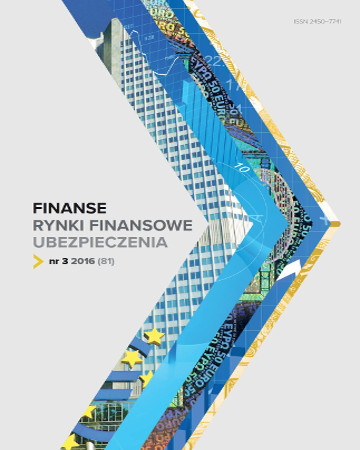
ISSN: 2450-7741
eISSN: 2300-4460
OAI
DOI: 10.18276/frfu.2016.81-29


Issue archive /
3/2016 (81)
Wszechstronne Regionalne Partnerstwo Ekonomiczne (RCEP) jako przykład nowego trendu w regionalizmie
(RCEP as an Example of a New Trend in Regionalism)
| Authors: | Krystyna Żołądkiewicz |
| Keywords: | WTO cross-regional trade agreements (C-RTAs) free trade areas (FTAs) regionalism RCEP |
| Data publikacji całości: | 2016 |
| Page range: | 10 (335-344) |
Abstract
The goal of this paper is to present a problem of a new trend in regionalism, such as creation of cross-regional trade agreements, especially in Asia-Pacific region. It is an important issue because trans- Pacific region plays a significant role in the world economy. RCEP agreement has been recently under negotiations aiming to unite 16 countries: 10 countries belonging to the group called ASEAN and Australia, China, India, Japan, Korea, and new Zealand (6 countries). The outcome of this paper was based on critical analysis of the literature of the subject and documents of the WTO and the RCEP negotiations supplied by participating countries. This paper is a part of the discussion on the trends in regionalism.
Download file
Article file
Bibliography
| 1. | ASEAN Roadshow to Japan Ends on a High Note. Pobrano z: www.asean.org (6.05.2016). |
| 2. | ASEAN Secretariat News (2012). Pobrano z: www.asean.org (5.05.2016). |
| 3. | Baldwin, R., Evenett, S., Low, P. (2009). Beyond Tariffs: Multilateralizing Non-Tariff RTA Commitments. W: R. Baldwin, P. Low (red.), Multilateralizing Regionalism: Challenges for the Global Trading System. Cambridge: Cambridge University Press. |
| 4. | Baldwin, R. (2006). Multilateralizing Regionalism: Spaghetti Bowls as building Blocs on the Path to Global Free Trade. NBER Working Paper, 12545, September. |
| 5. | Chatterjee, B., Singh, S. (2015). Why RCEP is Vital for India. The Diplomat, March. |
| 6. | Concentrated Trade in RCEP (2016). Policy Brief No: 16-07. Singapore: Asian Trade Centre. |
| 7. | DiCaprio, A. A New FTA in a Congested Trade Landscape: Can RCEP Unravel the Noodle Bowl? Pobrano z: https://aric.adb.org (3.05.2016). |
| 8. | Elms, D.K. (2016). Advice to RCEP Official. Singapore: Talking Trade, Asian Trade Center. |
| 9. | Fiorentino, R.V., Crawford, J-A., Toqueboeuf, C. (2009). The Landscape of Regional Trade Agreements and WTO Surveillance. W: R. Baldwin, P. Low (red.), Multilateralizing Regionalism. Challenges for the Global Trading System, Cambridge: Cambridge University Press. |
| 10. | Fukunaga, Y., Isono, I. Talking ASEAN+1 FTAs Towards the RCEP: A Mapping Study. ERIA Discussion Paper Series, ERIA-DP-2013-02. Pobrano z: https://aric.adb.org/fta/regional-comprehensive-economic-partnership (1.05.2016). |
| 11. | Guiding Principles and Objectives for Negotiating the Regional Comprehensive Economic Partnership. Pobrano z : http://dfat.gov.au/trade/agreements/rcep/Documents/guiding-principles-rcep.pdf (4.05.2016). |
| 12. | Hoekman, B., Kostecki M.M. (2011). Ekonomia światowego systemu handlu. Wrocław: Wydawnictwo Uniwersytetu Ekonomicznego we Wrocławiu. |
| 13. | Joint Declaration on the Launch of Negotiations for the Regional Comprehensive Economic Partnership. Pobrano z: http://www.meti.go.jp/press/2012/11/20121120003/20121120003-2.pdf (4.05.2016). |
| 14. | Michalski, B. (2014). Międzyregionalne porozumienia handlowe. Transpacyficzny regionalizm jako alternatywa dla „wolnego” handlu? Warszawa: Difin. Ministerial Meeting. 24 August 2015. Kuala Lumpur, Malaysia. Pobrano z: www.asean.org (4.05.2016). |
| 15. | Regional Comprehensive Economic Partnership, Government of Australia, Department of Foreign Affairs and Trade (DFAT) (2016). Canberra, May. |
| 16. | Woolcock, S. (2003). A Framework for Assessing Regional Trade Agreements: WTO-plus. W: G.P. Sampson, S. Woolcock (red.), Regionalism, Multilateralism, and Economic Integration. Tokyo–New York–Paris: United Nations University Press. |
| 17. | Żołądkiewicz, K. (2012). Fale regionalizmu. W: R. Orłowska, K. Żołądkiewicz (red.), Globalizacja i regionalizacja w gospodarce światowej, s. 199–202. Warszawa: PWE. |
| 18. | Żołądkiewicz, K. (2015). Partnerstwo Partnerstwo Transpacyficzne (TPP) jako nowe porozumienie integracyjne w regionie Azji-Pacyfiku. Zeszyty Naukowe Uniwersytetu Szczecińskiego, 857.gh |